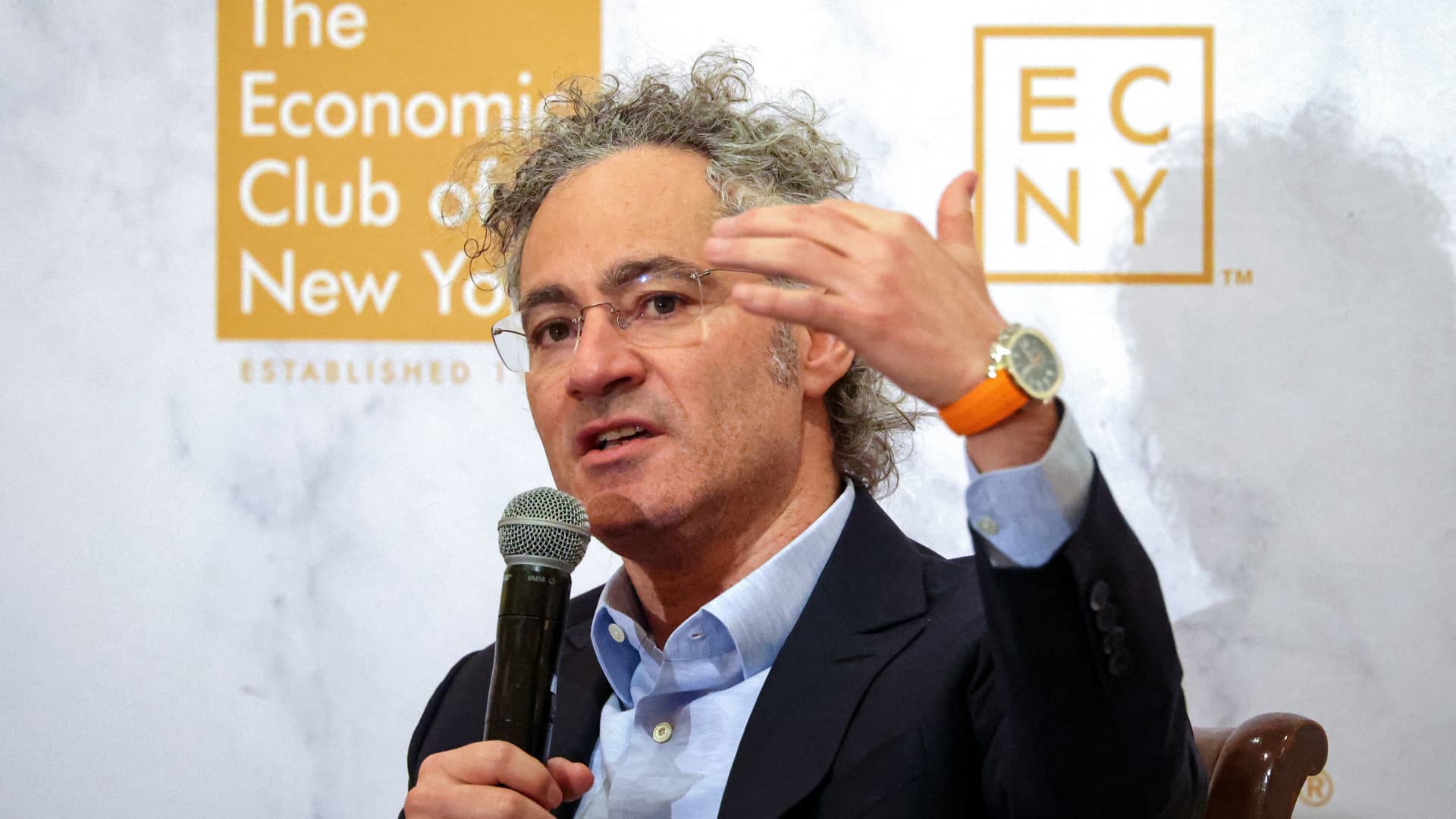The AI Revolution: Transforming Markets, Industries, and Investment Strategies
Introduction: The Unstoppable Rise of AI
Artificial Intelligence (AI) is no longer a futuristic concept—it’s reshaping industries, redefining competition, and altering investment landscapes in real time. From Palantir’s data analytics dominance to Tesla’s autonomous driving ambitions, AI is driving market volatility and creating new opportunities. This report explores how AI influences stock movements, corporate strategies, and investor behavior, with a focus on key players like Palantir, Tesla, Ford, and DoorDash.
Palantir: The AI-Powered Data Giant
From Earnings Miss to AI Triumph
Palantir’s stock swings—like its 13.4% drop after a Q1 earnings miss—highlight the market’s sensitivity to AI-driven growth narratives. Yet, its 22% surge post-Q4 results demonstrates how AI adoption can reverse fortunes. Palantir’s AI platform, particularly its military and enterprise applications, has become a revenue catalyst, with 49% growth in Q1. Investors now view Palantir as a bellwether for AI’s real-world impact, rewarding scalability and government contracts.
Economic Recoveries and AI Demand
As U.S. and U.K. economies rebound, demand for AI-driven decision-making tools has skyrocketed. Palantir’s software, used for everything from supply chain optimization to fraud detection, thrives in this environment. The lesson? AI stocks aren’t just tech plays—they’re economic recovery bets.
Tesla: AI as a Competitive Moat
Volatility and the Autonomous Driving Race
Tesla’s 10.4% midday drops often stem from AI-related headlines—whether it’s rival advancements (like Zeekr’s driver-assist tech) or Elon Musk’s unpredictable announcements. Tesla’s AI edge lies in its vast data trove from millions of vehicles, training its Full Self-Driving (FSD) systems. When Musk offers FSD for free, shares react; when competitors close the gap, investors flee. Tesla’s stock is now a proxy for AI’s role in automotive disruption.
The Musk Factor
Musk’s tweets and strategic pivots (e.g., prioritizing robotaxis over budget EVs) can swing Tesla’s valuation by billions in hours. This underscores a broader market truth: in AI, leadership vision is as critical as technology.
Ford: AI in the Transition to Electric
Legacy Challenges vs. AI Innovation
Ford’s midday swings reflect its precarious position: a legacy automaker racing to embed AI into its EV pivot. While Tesla leverages AI for autonomy, Ford uses it for manufacturing efficiency (e.g., AI-driven supply chain tools) and driver-assist features. But investors remain skeptical—can Ford’s AI investments offset its slower EV rollout?
The BlueCruise Bet
Ford’s hands-free driving system, BlueCruise, is a litmus test. Its success—or failure—against Tesla’s FSD will determine whether Ford’s AI strategy is differentiator or afterthought.
DoorDash: AI and the Future of Delivery
Dynamic Pricing and Demand Forecasting
DoorDash’s stock volatility mirrors the cutthroat food delivery space, where AI optimizes delivery routes, predicts order surges, and adjusts pricing in real time. Yet, competition (Uber Eats, Grubhub) is deploying similar tech, squeezing margins. DoorDash’s AI edge? Its acquisition of Wolt, expanding its algorithmic reach globally.
The Dark Kitchen Phenomenon
AI enables “ghost kitchens”—delivery-only restaurants optimized by predictive analytics. For DoorDash, mastering this could mean the difference between growth and stagnation.
Conclusion: AI as the Ultimate Market Disruptor
The midday moves of Palantir, Tesla, Ford, and DoorDash reveal a unifying theme: AI isn’t just a tool; it’s the battlefield. Companies that harness AI to solve real problems (Palantir’s data tools, Tesla’s autonomy) are rewarded; those that lag (Ford’s cautious EV play) are punished. For investors, the takeaway is clear:
– AI Adoption = Growth Signal: Stocks with scalable AI (like Palantir) outperform when execution aligns with hype.
– Leadership Matters: Musk’s influence on Tesla proves AI-driven firms need visionary stewards.
– Sector-Specific AI Wins: Ford’s manufacturing AI differs from DoorDash’s logistics AI—context is key.
In this new era, understanding AI’s role isn’t optional—it’s the difference between capitalizing on volatility and being left behind. The midday market isn’t just reacting to earnings; it’s pricing in who’s winning the AI arms race.











